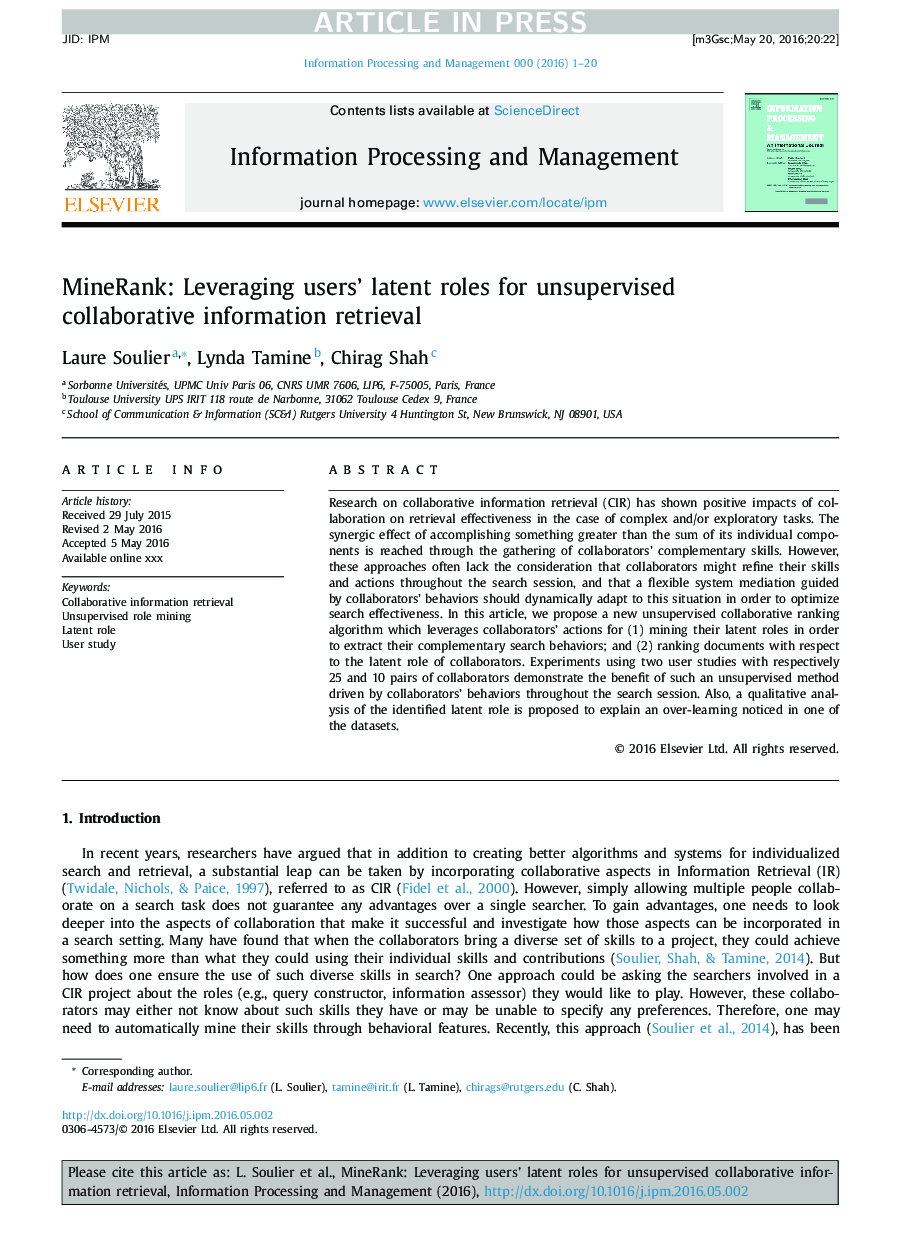| Article ID | Journal | Published Year | Pages | File Type |
|---|---|---|---|---|
| 4966487 | Information Processing & Management | 2016 | 20 Pages |
Abstract
Research on collaborative information retrieval (CIR) has shown positive impacts of collaboration on retrieval effectiveness in the case of complex and/or exploratory tasks. The synergic effect of accomplishing something greater than the sum of its individual components is reached through the gathering of collaborators' complementary skills. However, these approaches often lack the consideration that collaborators might refine their skills and actions throughout the search session, and that a flexible system mediation guided by collaborators' behaviors should dynamically adapt to this situation in order to optimize search effectiveness. In this article, we propose a new unsupervised collaborative ranking algorithm which leverages collaborators' actions for (1) mining their latent roles in order to extract their complementary search behaviors; and (2) ranking documents with respect to the latent role of collaborators. Experiments using two user studies with respectively 25 and 10 pairs of collaborators demonstrate the benefit of such an unsupervised method driven by collaborators' behaviors throughout the search session. Also, a qualitative analysis of the identified latent role is proposed to explain an over-learning noticed in one of the datasets.
Related Topics
Physical Sciences and Engineering
Computer Science
Computer Science Applications
Authors
Laure Soulier, Lynda Tamine, Chirag Shah,
